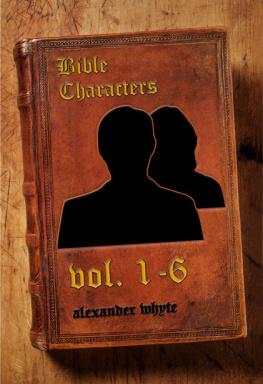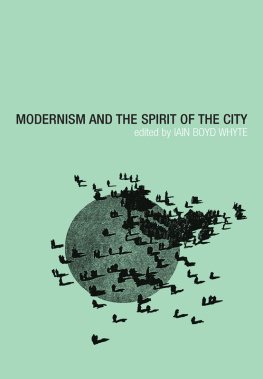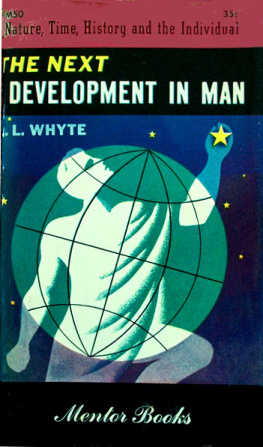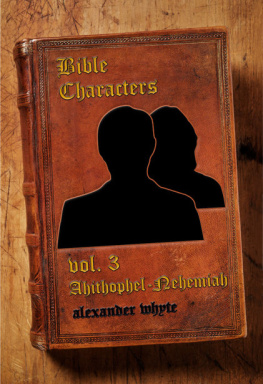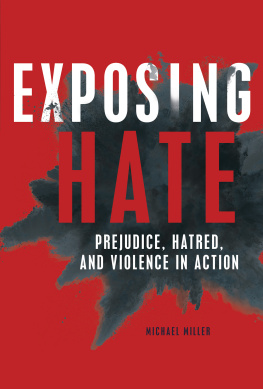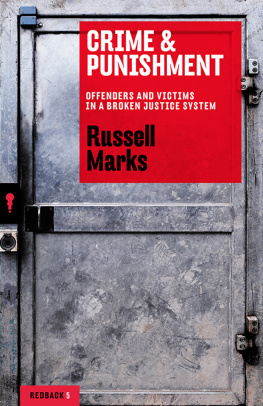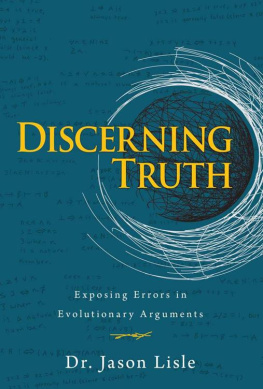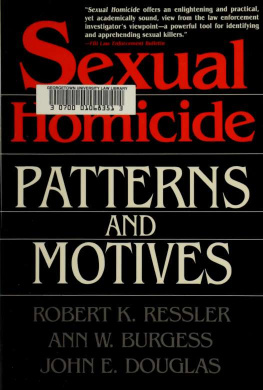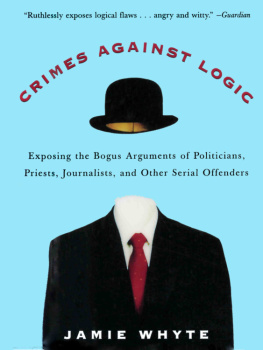
Copyright 2005 by Jamie Whyte. All rights reserved. Except as permitted under the United States Copyright Act of 1976, no part of this publication may be reproduced or distributed in any form or by any means, or stored in a database or retrieval system, without the prior written permission of the publisher.
ISBN: 978-0-07-178439-9
MHID: 0-07-178439-X
The material in this eBook also appears in the print version of this title: ISBN: 978-0-07-144643-3, MHID: 0-07-144643-5.
E-book conversion by Codemantra
Version 1.0
All trademarks are trademarks of their respective owners. Rather than put a trademark symbol after every occurrence of a trademarked name, we use names in an editorial fashion only, and to the benefit of the trademark owner, with no intention of infringement of the trademark. Where such designations appear in this book, they have been printed with initial caps.
McGraw-Hill Education books are available at special quantity discounts to use as premiums and sales promotions or for use in corporate training programs. To contact a representative, please visit the Contact Us page at www.mhprofessional.com.
TERMS OF USE
This is a copyrighted work and McGraw-Hill Education and its licensors reserve all rights in and to the work. Use of this work is subject to these terms. Except as permitted under the Copyright Act of 1976 and the right to store and retrieve one copy of the work, you may not decompile, disassemble, reverse engineer, reproduce, modify, create derivative works based upon, transmit, distribute, disseminate, sell, publish or sublicense the work or any part of it without McGraw-Hill Educations prior consent. You may use the work for your own noncommercial and personal use; any other use of the work is strictly prohibited. Your right to use the work may be terminated if you fail to comply with these terms.
THE WORK IS PROVIDED AS IS. McGRAW-HILL EDUCATION AND ITS LICENSORS MAKE NO GUARANTEES OR WARRANTIES AS TO THE ACCURACY, ADEQUACY OR COMPLETENESS OF OR RESULTS TO BE OBTAINED FROM USING THE WORK, INCLUDING ANY INFORMATION THAT CAN BE ACCESSED THROUGH THE WORK VIA HYPERLINK OR OTHERWISE, AND EXPRESSLY DISCLAIM ANY WARRANTY, EXPRESS OR IMPLIED, INCLUDING BUT NOT LIMITED TO IMPLIED WARRANTIES OF MERCHANTABILITY OR FITNESS FOR A PARTICULAR PURPOSE. McGraw-Hill Education and its licensors do not warrant or guarantee that the functions contained in the work will meet your requirements or that its operation will be uninterrupted or error free. Neither McGraw-Hill Education nor its licensors shall be liable to you or anyone else for any inaccuracy, error or omission, regardless of cause, in the work or for any damages resulting therefrom. McGraw-Hill Education has no responsibility for the content of any information accessed through the work. Under no circumstances shall McGraw-Hill Education and/or its licensors be liable for any indirect, incidental, special, punitive, consequential or similar damages that result from the use of or inability to use the work, even if any of them has been advised of the possibility of such damages. This limitation of liability shall apply to any claim or cause whatsoever whether such claim or cause arises in contract, tort or otherwise.
Preface
All self-help books should begin with a confession. Here is mine: I write letters to the editor. Outraged of London, thats me. I am getting better, though. I often dont send the letters, and sometimes I dont even write them. If I had a therapist, he would be pleased by my progress.
But I must also confess that there has been no deep reform of my character. I still want to write those letters. Its just that what gets me so riled doesnt seem to be of the least interest to the editor of the London Times. Nor to my increasingly fewer friends, who yawn and roll their eyes as I explain my concernsor rant, as the less kind among them say.
What bothers me so much?
Errors in reasoning. Fallacies. Muddled thinking. Call it what you like; you know the kind of thing I mean.
Because you have chosen to read a book with the title Crimes Against Logic, you may be more sympathetic than my friends and the editor of the Times. And sympathy is called for. The modern world is a noxious environment for those of us bothered by logical error. People may have become no worse at reasoning, but they now have so many more opportunities to show off how bad they are. If anyone cared about our suffering, talk radio and oped pages would be censored. Even Congress is now broadcast, as if no torment were too great.
Why are we protesters so lonely? Why dont the other consumers of all this defective thinking complain to the supplier, and to whoever else will listen, as they would if their washing machines leaked or their cars wouldnt start?
The simple answer is that most people dont notice the problem. When a car breaks down, anyone can see that it has even if he knows nothing about how cars work. Reasoning is different. Unless you know how reasoning can go wrong, you cant see that it has. The talking doesnt stop, no steam emerges from the ears, the eyes dont flash red. Perhaps one day someone will design a device whereby logical errors set off some such alarm, and no politician, journalist, or businessperson will be allowed to speak without having the device applied. Until that happy day, however, we must all rely on our own ability to spot errors in reasoning.
Alas, most know next to nothing about the ways reasoning can go wrong. Schools and universities pack their minds with invaluable pieces of informationabout the nitrogen cycle, the causes of World War II, iambic pentameter, and trigonometrybut leave them incapable of identifying even basic errors of logic. Which makes for a nation of suckers, unable to resist the bogus reasoning of those who want something from them, such as votes or money or devotion.
Many instead defend themselves with cynicism, discounting everything said by anyone in a position of power or influence. But cynicism is a poor defense, because it doesnt help to tell good reasoning from bad. Believing nothing is just as silly as believing everything. Cynicism, like gullibility, is a symptom of underdeveloped critical faculties.
This book aims to help fill the gap left by the education system. But it is not a textbook. It is the logic equivalent of one of those troubleshooting guides in your car or computer manual. It is aimed at everyday users and consumers of reasoning, which is everyone, and covers those errors in reasoning that are commonly encountered, especially when discussing or debating controversial topics. Each of the twelve chapters is devoted to one such fallacy.
Once pointed out, it is easy to see that they are fallacies. Harder is spotting them in everyday life. Most of the book is therefore devoted to discussing examples. Some are imaginary but of such a familiar kind that you will have no trouble recalling real cases you have encountered. More, however, are real examples, drawn from politics, theology, business, and where-ever people engage in reasoned debateor what passes for it.
For Mariam Rachel, co-gestater
Contents
The Right to Your Opinion
Know your rights!
So we are advised by all sorts of well-meaners. When I was an undergraduate student, activists wanted me to know the rights that protected me against police harassment. Having dutifully learned them, I was disappointed never to encounter the expected harassment. Now I receive pamphlets telling me that I may have a right to various kinds of government assistance, including money. Alas, the result of inquiry is always the discovery that I dont qualify. As with cheap flights, conditions apply, and it seems that I am the citizens equivalent of someone who wants to fly to Sydney at Christmas.
Next page

